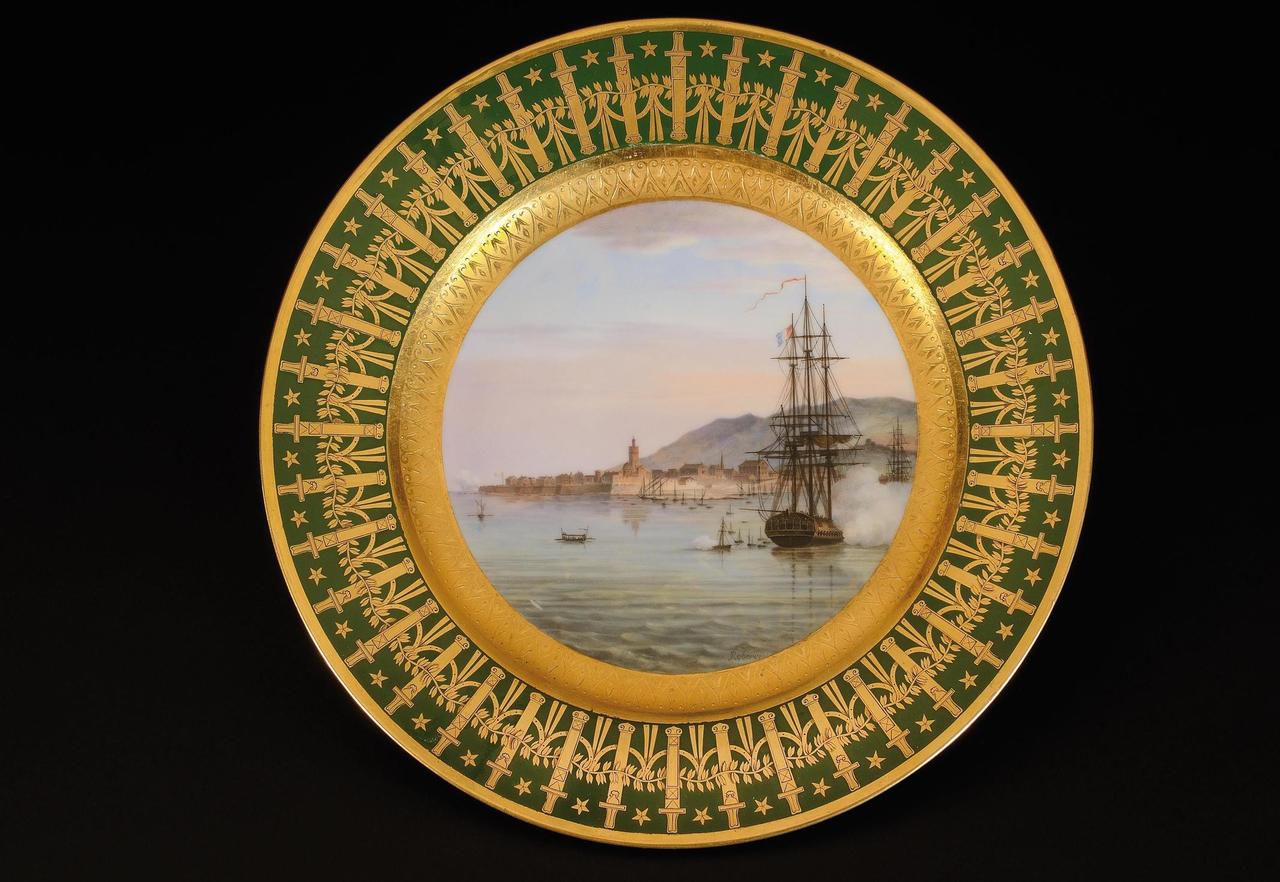First half of the XIXth century still ignores the festivities of Christmas without being spared - at least in the wealthiest social classes - by distribution of gifts on New Year. This tradition of New Year's Eve also follows Napoleon in the latitudes of St. Helena. To offer New Year's gift meant to maintain his rank, a respect of etiquette rather than a necessity for the Emperor who did not confess fallen.
New Year's Eve at St. Helena.
Freshly landed at St. Helena on October 17th, 1815, Napoleon did not arrive alone. His little entourage knew the greatness of the Empire; it is certainly inconceivable for Bonaparte to make them witnesses of any decay of his person. As soon as he took possession of Longwood’s residence, the Emperor reinstated the strict etiquette that governed life in the Tuileries palace. But this etiquette that we think at first binding for his entourage was just as much for him. In applying it, Napoleon was well aware of the duties that he would impose upon him during his exile. On December 10th, 1815, day when he moved to Longwood, the imminence of the new year is only felt too much. But the perfidious Albion seemed to decide to insidiously disturb this tradition by choosing for land of exile that arid St. Helena on which no goldsmith or jeweler, artist or upholsterer had ever had the happy idea of establishing himself on the island. It is therefore in his personal belongings and the precious relics of his sumptuous past that Napoleon will draw to honor his little court.
Do you like this article?
Like Bonaparte, you do not want to be disturbed for no reason. Our newsletter will be discreet, while allowing you to discover stories and anecdotes sometimes little known to the general public.
Congratulations!
You are now registered to our Newsletter.
The gifts offered by Napoléon in Saint Helena.
We unfortunately do not know exactly the furniture and objects hastily carried away by Napoleon and his companions in exile when leaving for Saint Helena. And for good reason, most were purely and simply stolen by the faithful of the Emperor for the sole purpose of pleasing him. The journals and archives of those who had the honor of being admitted in the presence of Napoleon during his exile report some of the gifts he made on the occasion of the New Year. Emmanuel de Las Cases (1766 – 1842) notes in his diary on December 30th, 1815 that he was offered by the Emperor “a small gift, very slight indeed”, according to Napoleon himself, consisting of a monthly salary levied on a sum stolen from English vigilance. In January 1816 Bonaparte offered to Jane and Betsy Balcombe, daughters of William Balcombe (1777 – 1829), agent of the East India Company who welcomed Napoleon in his Saint Helena’s home at the end of 1815, two cups from the Cabaret Égyptien, pieces from the porcelain service of Sèvres which the Emperor held so much that he refused to use it on a daily basis for fear of breaking it.
The so-called “headquarters” (Quartiers Généraux) service – which did not know any Saint-Helene dishes for the same reasons as those which prohibited the use of the Cabaret Égyptien– was also cut off from certain pieces the following year when, for their presents, Napoleon offered to each Madame de Montholon and Madame Bertrand a plate from the precious service. That same month of January 1817, the Baron Gourgaud (1783 – 1852) reports that the Emperor offered more personal objects: to Madame Bertrand a candy box formerly offered by Pauline Bonaparte and to Gourgaud an spyglass that the Emperor held from the Queen of Naples, her youngest sister. To Bertrand he offered a game of chess and then played a party with him after the distribution of gifts. In January 1818, the New Year’s day is reduced to candies contradicting the very adventurous predictions of Madame Bertrand, who was expecting “sumptuous gifts” ; it is difficult to understand from where this idea came from given the geographical location of the island. These testimonies of happy moments illuminate the often dull idea that everyone has of Bonaparte’s exile. The habits dear to the Emperor remain despite the restrictions. Exile is thus colored with those charming and bourgeois moments that make daily life more bearable, revealing the intimate face of a Bonaparte whom appears as imperial as he is attentive.
Marielle Brie
Marielle Brie est historienne de l’art pour le marché de l’art et de l’antiquité et auteur du blog « Objets d’Art & d'Histoire ».
